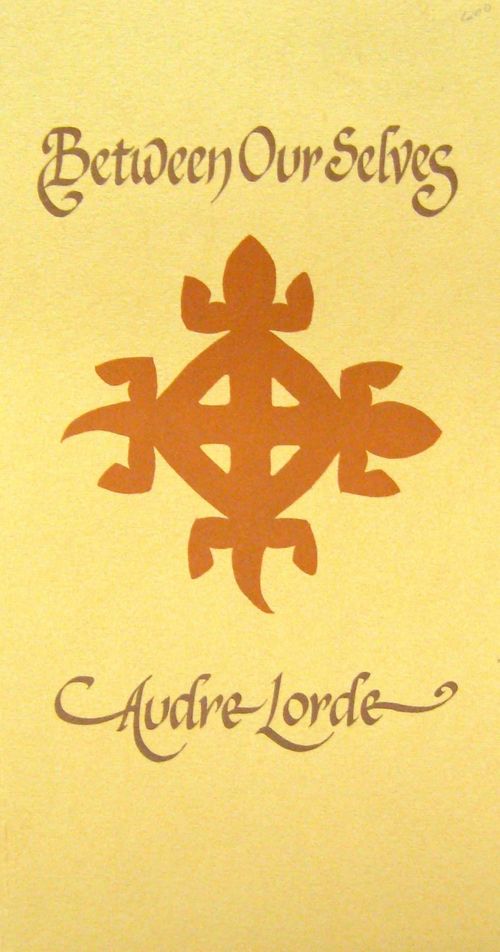Between Our Selves
Audre Lorde

(by three American women) of an assortment of Southern African poets.
Audre Lorde has taken those linear, those vertical divisions that separate us, and has drawn a circle around them in Between Ourselves. It is not a witch’s circle; it is an embrace. The great moments are here, the estrangements of power and of powerlessness, the universal questions, and the only possible responses.
In ‘Solstice,’ she asks:
who do you think me to be
that you are terrified of becoming
or what do you see in my face
you have not already discarded
in your own mirror
She supplies her own answer:
for most of all I am
blessed within my s elves
who are come to make our shattered faces
whole. (Italics mine)
The poet in Between Ourselves (sic) is greater than her art, bigger than her race, than her sex, than even her own priorities. ‘Once it was easy to know/who were my people,’ she reveals in the title poem. But identity is a bigger, more circular thing than this: ‘I do not believe/our wants have made all our lies/holy.’ Thus she moves softly from identity to dignity. Somehow the struggle must be as noble as its goals, or perhaps even more so. There is a constant refusal to submit to or mimic, for whatever high ends, the indignity of the captor, of the dehumanizer. She continues her circle in references to her own childhood, and to her own children. The circle is completed in ‘School Note.’ The continuing struggle meets itself full face, where ‘their playgrounds /were graveyards.’
The theme is concentrated within her when she writes in ‘Power’:
But unless I learn to use
the difference between poetry and rhetoric
my power too will run corrupt as poisonous mold
Audre Lorde speaks to the few, to the select, to everyone, as she describes the
place we all seek, and each of us more than the other:
for the embattled
there is no place
that cannot be
home
nor is.
~ Mary McAnnally-Knight, Obsidian (1975-1982), Vol. 4, No. 2 (Summer 1978)
Check for it on:
Details
| Genre | Poetry; Black Interest; Grier Rated |
| Publication Date | 1976 |
| Publisher | Eidolon Editions |
| Language | English |
| Rating | Great |
| BookID | 1093 |
